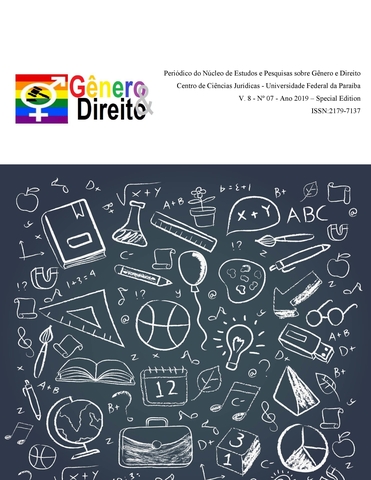ON THE CULTURE OF PHILOSOPHICAL DIALOGUE
DOI:
https://doi.org/10.22478/ufpb.2179-7137.2019v8n7.50003Palavras-chave:
philosophical dialogue, insult, virtue epistemology, intellectual snobbism, intellectual chauvinism, ISUD.Resumo
The article is devoted to intra-philosophical dialogue and those obstacles that threaten it. One of these obstacles seems to be the self-reflection of philosophers that philosophy itself is an insult and is only possible as an insult. They argue that philosophy, challenging the opinion of authorities or the majority, thereby carries an intellectual insult. In the course of the conceptual analysis of “insult” concept, we show that this point of view is wrong, since insulting requires unfair motivation. Nevertheless, the intellectual insult is present in philosophy in a different form. It is expressed in the disqualification of the opponent as a “non-genuine” philosopher. Such an intellectual attitude, when a certain philosophical position is declared genuine (authentic), and all others are not authentic, is called philosophical chauvinism. Four main forms of intellectual chauvinism in philosophy (and, accordingly, four types of intellectual discrimination) are distinguished: interdisciplinary, intradisciplinary, interschool, and intraschool. Overcoming of intellectual discrimination within philosophy is associated with the need to criticize intellectual arrogance and intellectual snobbery and the development of international and intra-national dialogue in philosophy.
Downloads
Referências
Brinev K.I. The problem of expert assessment of an insult. Insult in the linguist's legal consciousness. Insult as a speech act // Linguistics in law. No. 1 (11), 2011 pp. 330-338
Neu J. Sticks and Stones. A Philosophy of Insult. Oxford University Press, 2009.
Minnullina E.B. Social knowledge in discursive practice // Scientific notes of Kazan. university. Series Humanity. Science. - 2014. - V. 156, book. 1, pp. 106–114.
Karimov A.R. The essence and role of intellectual virtues in the cognitive process: the dissertation for the degree of Doctor of Philosophy: specialty 09.00.01. / A.R. Karimov. Kazan, 2018. - 415 p.
Mayorov G.G. Philosophy as the search for the Absolute. Theoretical and historical experiments. 3rd version - M: Librocom, 2012. - 416 p.
Popper K.R. Objective knowledge. The evolutionary approach. Translation from English by D.G. Lahuti. M.: Editorial URSS, 2002.
Chomsky N. Language and Politics. Ed. by C. P. Otero, 2004.
From Professor Barry Smith and others. [Electronic resource]: http://ontology.buffalo.edu/smith/varia/Derrida_Letter.htm. Access mode: free.
Karimov A.R. Deep disagreement and argumentative virtues // Society: philosophy, history, culture. 2018. No. 1. pp. 15–20.
International Society for Universal Dialogue. [Electronic resource]: http://www.worldialogue.org/ Access mode: free.
Taysina E.A. Polish magazine "D&U" - the scientific forum for a universal dialogue of scientists // Philosophy, Science, Culture. The collection of scientific articles dedicated to the 60th anniversary of Professor A. A. Shestakov. Samara State University of Architecture and Civil Engineering. Samara, 2015. pp. 161-171.
Read [4] on the perlocutionary effects of discourse in social practice
Rasooli, M., & Abedini, M. (2017). The Relationship between Organizational Support and Job Satisfaction of Experts and Managers of Islamic Azad University of Qeshm and Subsidiaries (International Units, Medical, Sama, Hormuz and Khamir). Dutch Journal of Finance and Management, 1(2), 42. https://doi.org/10.29333/djfm/5818
Marques, B. P., Villate, J. E., & Carvalho, C. V. (2018). Student Activity Analytics in an e-Learning Platfom: Anticipating Potential Failing Students. Journal of Information Systems Engineering & Management, 3(2), 12.
Abdul Rahman, S. (2019). Example Construction as a Devise to Reveal Awareness of Calculus Integration. International Electronic Journal of Mathematics Education, 14(1), 233-241. https://doi.org/10.29333/iejme/3999
Bakhyt, S., Kalimbetov, B., &
Khabibullayev, Z. (2018). Possibilities of mathematical problems in logical thinking. Development of secondary education pupils. Opción, 34(85-2), 441-457

